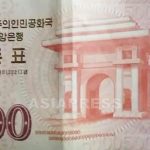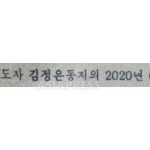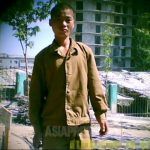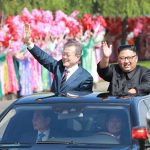◆ The North Korean style “class system and caste system” is being weakened
Aside from a social transformation, the North Korean style of a “class system and caste system”, which is based on traditional socialism has crippled. Nowadays, if one has money, one can become a member of the Party and become a government official. Farmers at collective farms, mostly unable to move to urban areas in the past, can quit their job and stay in a city as long as they have money. On the contrary, once-privileged “anti-Japanese revolutionary families” and “families of a soldier who fought in the Korean War,” who have obediently supported the regime, have lost most of their practical privileges. Thus, those who do not have money cannot be successful in North Korea. The marketization gave birth to a wider gap of economic inequality, changing the structure of what social status is in North Korea.
Related Article: [Video Report] National bus network of the North Korean market economy
The prevailing market economy has also made changes in the way people think. Since it has been common to make a living without depending on the regime, the Party, or the leader, the loyalty towards the government and the leader have been considerably weakened and a sense of apathy has become more and more prominent. Everyone is busy with their own businesses.
As mentioned above, information from outside has stimulated a social transformation. There is a wide-known understanding among the masses that other socialist states such as China and Vietnam have drastically prospered due to an "open door" policy and that South Korea, taught to be regarded as a hostile country, has become a very well off and economically developed country. As a consequence, the number of people who can reckon their poverty and the lack of freedom in comparison has sharply increased. I have come to a conclusion after interviewing a number of North Koreans that the general public in North Korea thinks that the North Korean political establishment should, firmly adhering to socialism, pursue with an "open door policy.
Related Article: N.Korea Market Survey Reveals Basic Food Price Hike
However, it is important to closely and carefully monitor the situation inside North Korea in order to understand what kind of effect, and to what degree, the expansion of the market economy has on the Kim Jong-un regime. An ever-enlarging market economy may cripple the control of the regime, but the government may successfully be able to take advantage of the market economy for economic development and use that to stabilize the regime.
[End]
[Honorific titles are omitted]
[Note 4]: Eiji Yamamoto, “The current situation and the future prospect of the North Korean economy– the direction of the reform and the opening-up policy“, New ESRI Working Paper Series No.7, August 2008. [Note 5], [Note 6]: Kim Ji-young “More autonomy was given to producers. The North Korean style socialistic economic management.”, Choson Shinbo Online, on the 4th February 2014. http://chosonsinbo.com/jp/2014/02/20140204riyo/ [Note]: This report is the revision of my article “The expansion of the market economy and the social transformation in North Korea–based on the sources from inside North Korea”. It was posted on “The economy and the politics in South Korea and North Korea”, in “Kenkyu-sousho Vol. 162” published by Institute of Economic and Political Studies, Kansai University, on March 2016.<Market Economy in N.Korea> View article sections
【Related Article】
◆ Is Economic Sanction Really Effective? Searching Effect from Retail Price Index
◆ Delinquent Juveniles Mobilized For Forced Labor
◆ [Video Report] Back alley of Pyongyang: Never let foreigners go. Residents of central Pyongyang live on businesses in the market
 * Editor’s notes on North Korean reporters
* Editor’s notes on North Korean reporters
ALL REPORTS >>>
ARCHIVE(pdf) >>
DPRK MAP >>

























